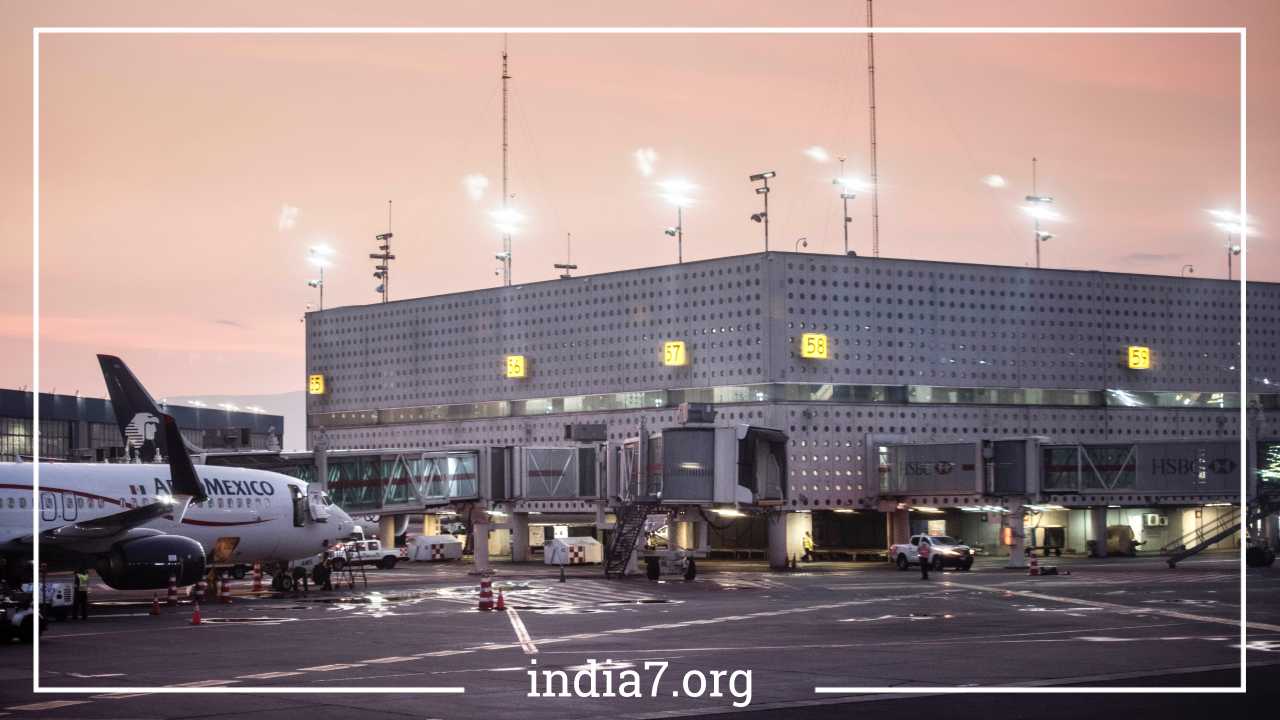Comprehensive Guide to International Air Travel Rules and Regulations

International Air Travel Rules and Regulations
Traveling internationally is an exciting and enriching experience that allows individuals to explore new cultures, conduct business across borders, and create lasting memories. Whether you’re planning a leisurely vacation or a crucial business trip, flying on an international flight is a vital component of your journey. However, it’s essential to recognize that international air travel comes with a set of rules and regulations that must be understood and adhered to.
Ignoring or neglecting these rules can lead to a range of problems, from minor inconveniences to severe consequences. In this comprehensive guide, we will delve into the intricacies of international air travel rules, emphasizing their importance and the potential repercussions of non-compliance.
1: Navigating the Airport
1.1 The Universal Airport Rules
Before embarking on your international adventure, it’s crucial to recognize that air travel regulations extend beyond the confines of the aircraft. As you initiate your journey, you’ll encounter a set of universal airport rules that apply to travelers in all airports, regardless of whether they are domestic or international. These rules are designed to ensure the safety and security of all passengers and airport personnel.
Common elements of universal airport rules include:
1.1.1 Restricted Items: Most airports enforce strict guidelines regarding what items you can carry in your luggage and onboard the aircraft. Prohibited items typically include weapons, explosives, flammable materials, and certain liquids exceeding a specified volume.
1.1.2 Baggage Screening: All checked and carry-on baggage is subject to thorough screening procedures. This is done to detect any prohibited or dangerous items that could pose a threat to the aircraft or its passengers.
1.1.3 Shoe Removal: In many countries, passengers are required to remove their shoes during the security screening process. This measure is in place to detect hidden objects or substances.
1.1.4 Passenger Screening: Passengers themselves are screened before entering secure areas of the airport. This involves passing through metal detectors and undergoing additional checks if necessary.
1.2 Unique International Airport Rules
In addition to the universal airport rules, international airports often have specific regulations and procedures that are tailored to the complexities of international travel. These may include:
1.2.1 Identity Verification: The foremost international airport regulation requires travelers to verify their identity. Given the heightened security concerns associated with international travel, providing proof of identity is a fundamental requirement. Depending on your destination, you may need more than just a government-issued ID card or driver’s license; you may be asked to provide your birth certificate, passport, visa, or certificate of citizenship.
1.2.2 Customs Declarations: International travelers are typically required to complete customs declarations, declaring items they are bringing into the country, including duty-free purchases, gifts, and certain food items. Failure to accurately declare items can result in fines or confiscation.
1.2.3 Immigration Checks: Immigration officers at international airports ensure that travelers meet the entry requirements of the destination country. This includes checking visas, passports, and other travel documents. Failure to meet these requirements can result in denied entry.
2: The In-Flight Experience
2.1 Boarding the Aircraft
Once you have successfully navigated the airport’s security checkpoints and procedures, it’s time to board your international flight. The process of boarding should be conducted calmly and efficiently. Airlines typically have specific boarding procedures in place to ensure a smooth and orderly process.
2.2 In-Flight Regulations
While aboard an international flight, passengers are expected to adhere to a set of in-flight regulations designed to ensure the safety and comfort of all passengers. These regulations include:
2.2.1 Seatbelts and Seating: Passengers are required to keep their seatbelts fastened at all times when seated, especially during takeoff, landing, and turbulence. Following the pilot’s instructions regarding seating is crucial for safety.
2.2.2 Electronic Devices: The use of electronic devices, such as smartphones, tablets, and laptops, is subject to specific rules set by the airline. During critical phases of the flight, these devices must be switched off or set to airplane mode.
2.2.3 Food and Beverage Service: Airlines provide meals and beverages during international flights. Passengers should follow instructions from flight attendants regarding meal service and the consumption of alcoholic beverages.
2.2.4 Cabin Behavior: Passengers are expected to behave in a considerate and respectful manner toward fellow travelers and flight crew. Disruptive behavior or refusal to cooperate with airline staff can lead to serious consequences.
3: Understanding the Significance of Air Travel Regulations
3.1 Safety and Security
The primary reason for the existence of international air travel regulations is the safety and security of passengers, crew members, and airport personnel. In an era marked by heightened security concerns and the continued threat of terrorism, these regulations play a critical role in preventing potential threats from being realized. While some rules may seem inconvenient or intrusive at times, they are essential for maintaining the safety of all travelers.
3.2 Global Cooperation
International air travel rules are often a result of international agreements and collaborations between countries. Aviation authorities worldwide work together to establish and enforce common standards, ensuring that passengers can travel safely and confidently across borders. These regulations provide a framework for consistent and predictable air travel experiences.
3.3 Preventing Delays and Disruptions
Compliance with international air travel regulations also contributes to the efficiency of air travel operations. When passengers follow rules and procedures diligently, it helps prevent delays and disruptions at airports and during flights. Delays can have cascading effects, causing inconvenience not only to individual travelers but also to airlines and airports.
3.4 Legal and Reputational Consequences
Failure to comply with international air travel regulations can lead to a range of legal and reputational consequences. In the event of non-compliance, passengers may face:
3.4.1 Warnings: For minor violations, passengers may receive warnings from airport or airline personnel, highlighting the importance of adhering to regulations.
3.4.2 Detention: In cases where a traveler is deemed a security risk or has committed a serious violation, they may be detained by airport security or local authorities. Detention can result in prolonged questioning and investigation.
3.4.3 Denial of Entry: Non-compliance with immigration requirements or customs declarations can lead to denial of entry into the destination country, necessitating an immediate return to the point of departure.
3.4.4 Criminal Charges: In extreme cases, violations of international air travel regulations can lead to criminal charges, which may result in fines, imprisonment, or both.
3.4.5 Airline Bans: Airlines maintain the right to ban passengers who engage in disruptive or dangerous behavior. Being labeled a security risk by an airline can result in a travel ban that extends beyond a single flight.
4: Consequences of Non-Compliance
4.1 Security Concerns
In the post-9/11 world, aviation security is of paramount importance. Non-compliance with international air travel regulations can raise red flags and lead to heightened suspicion. Airport security and airline personnel are trained to identify potential security threats, and any refusal to cooperate or engage in disruptive behavior can result in travelers being labeled as potential security risks.
4.2 Detention and Questioning
If you are suspected of violating international air travel regulations, whether intentionally or inadvertently, you may find yourself subjected to additional scrutiny. Depending on the nature of the violation and the discretion of security personnel or local authorities, this scrutiny can range from brief questioning to prolonged detention.
4.3 Impact on Travel Plans
Violations of international air travel regulations can disrupt your travel plans significantly. In cases where travelers are detained, their journeys may be delayed or canceled altogether. Detention and questioning can also be emotionally distressing and lead to missed connections or engagements at your destination.
4.4 Legal Consequences
Serious violations of international air travel regulations can have legal repercussions. In some cases, travelers may face criminal charges, fines, or imprisonment. These consequences can extend beyond the immediate travel experience and have long-lasting effects on your personal and professional life.
4.5 Impact on Other Passengers
Non-compliance with air travel regulations not only affects the individual involved but can also disrupt the travel experience for other passengers. Disruptive behavior can create discomfort and anxiety among fellow travelers and flight crew, detracting from the overall quality of the journey.
5: Best Practices for International Air Travel
5.1 Preparation and Documentation
To ensure a smooth international air travel experience, it’s essential to prepare meticulously. This includes:
5.1.1 Valid Travel Documents: Ensure that your passport, visa, and any required permits are up-to-date and valid for your destination.
5.1.2 Identification: Carry multiple forms of identification, including government-issued IDs, passports, and any other required documents.
5.1.3 Customs Declarations: Familiarize yourself with the customs regulations of your destination country and complete the necessary declarations accurately.
5.2 Cooperation and Compliance
Throughout your international journey, cooperation and compliance with regulations are key:
5.2.1 Security Screening: Comply with all security screening procedures, including removing your shoes and cooperating with security personnel.
5.2.2 Boarding: Follow the airline’s boarding instructions, boarding pass requirements, and seating assignments.
5.2.3 In-Flight Conduct: Maintain courteous and respectful behavior during the flight, and adhere to the airline’s rules regarding seatbelts, electronic devices, and cabin behavior.
5.3 Stay Informed
Stay informed about any changes or updates to international air travel regulations. Airlines and airports often provide guidance on their websites and through official channels. Remaining informed can help you avoid unexpected surprises during your journey.
6: Final Thoughts
In conclusion, comprehending and adhering to international air travel regulations is not merely a matter of convenience but a fundamental requirement for the safety, security, and efficiency of air travel. These regulations, both universal and specific to international airports, serve as a critical framework for the aviation industry and facilitate the seamless movement of travelers across borders.
Understanding the significance of air travel regulations goes beyond avoiding inconvenience; it encompasses a commitment to global security and cooperation. Compliance with these regulations not only safeguards your own travel experience but also contributes to the well-being and safety of fellow passengers and airport personnel.
While the consequences of non-compliance with air travel regulations can range from warnings to legal action, travelers can mitigate risks by staying informed, preparing diligently, and exhibiting cooperation and respect throughout their international journeys. By doing so, you can enjoy the enriching and transformative experience of international travel while upholding the highest standards of safety and responsibility.



